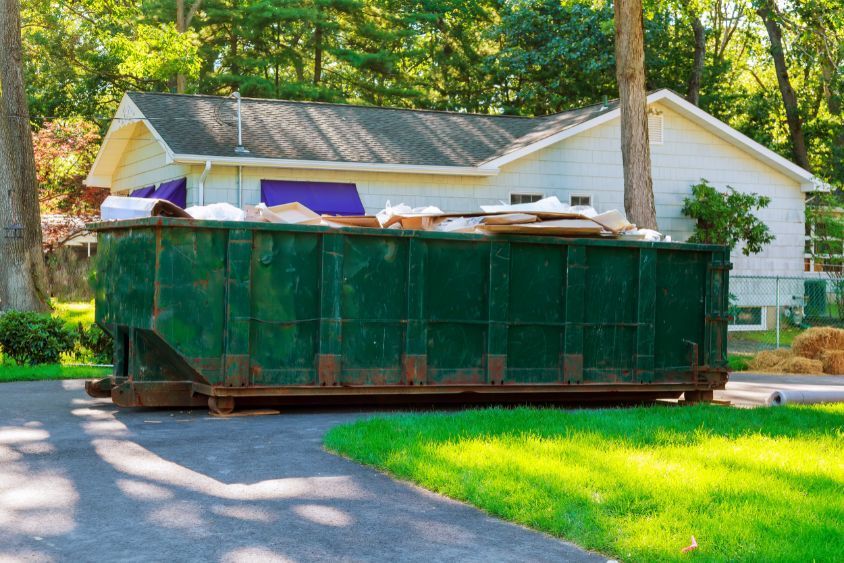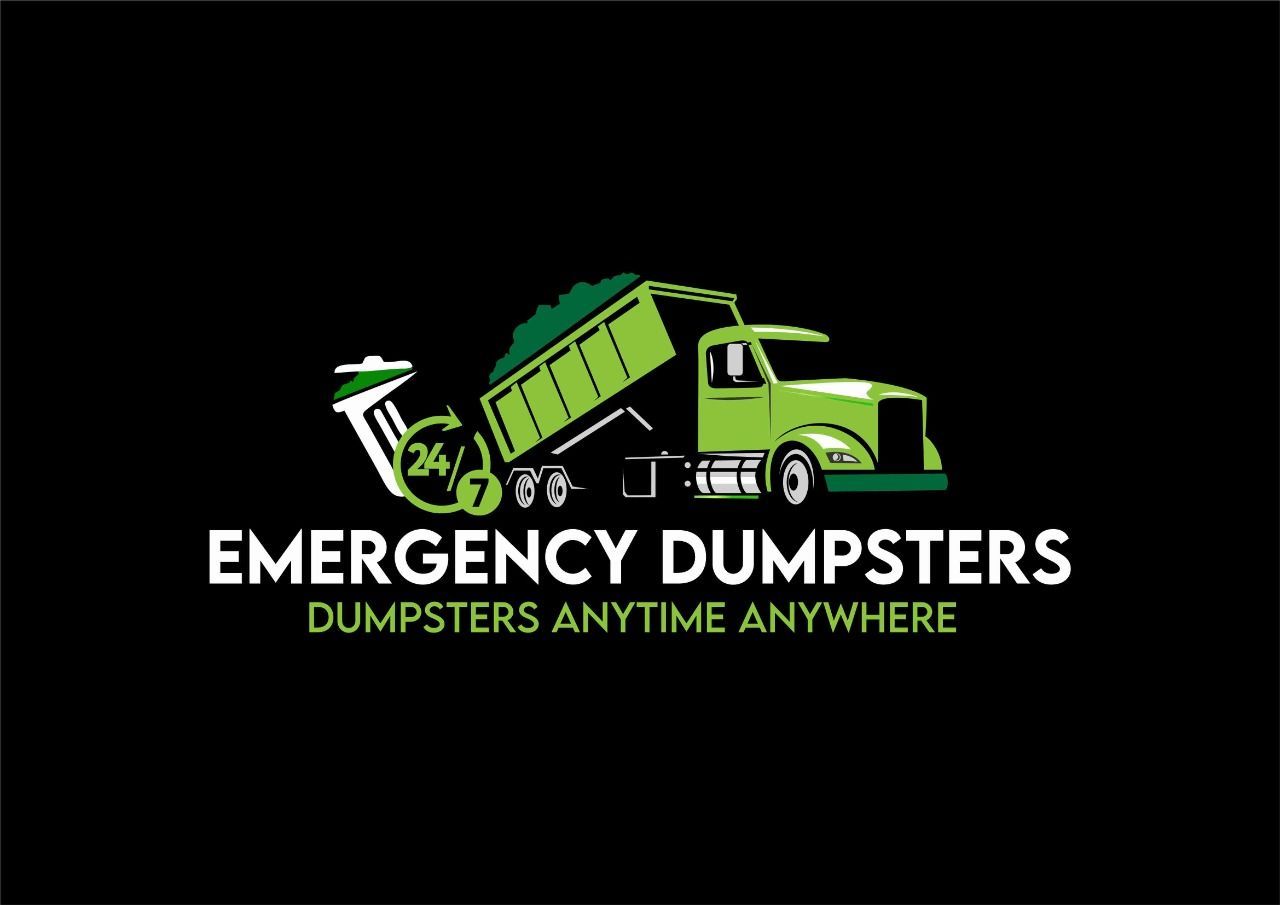Dumpster Rental Prices Explained
Michael Mintz
Dumpster rental prices vary widely, so understanding the factors influencing these costs is crucial. Whether planning a home renovation, a major cleanup, or a construction project, knowing what to expect will help you budget effectively. In this guide, we'll break down the components of dumpster rental pricing, explain additional costs, and offer tips for getting the best value. By the end, you'll be equipped to decide when to rent a dumpster.
Key Components of Dumpster Rental Pricing

One of the primary factors influencing the cost of a dumpster rental is its size. Dumpsters come in a variety of sizes, typically measured in cubic yards. The larger the dumpster, the more it costs. For example, a 10-yard dumpster might be sufficient for a small cleanup project, but a 40-yard dumpster is better suited for large-scale construction. Choosing the right size is essential to avoid overpaying or underestimating your needs.
How Long Should You Keep Your Dumpster?
Another crucial aspect of pricing is the duration of the rental. Most dumpster rental companies offer a standard rental period, usually 7 to 10 days. However, you may incur additional charges if your project extends beyond this period. It's essential to accurately estimate how long you'll need the dumpster to avoid unexpected costs. If your project timeline is still being determined, inquire about flexible rental terms that can accommodate changes.
Regional Variations and Their Impact
Where you rent your dumpster can also affect the price. Dumpster rental rates can vary significantly depending on your location. Urban areas have higher prices due to increased demand and disposal fees. Additionally, certain regions have stricter regulations regarding waste disposal, which can drive up costs. Understanding these regional variations can help you budget more effectively and choose the right rental company.
Additional Costs to Consider
While the base cost of a dumpster rental is essential, be mindful of potential overage fees. These fees apply if you exceed the weight limit or fill the dumpster beyond its capacity. To avoid overage fees, estimate the amount of debris your project will generate and choose a dumpster size accordingly. Most rental companies provide weight limits based on the type of debris, so understanding these limits can prevent additional charges.
Permits and Regulations
In some areas, you may need a permit to place a dumpster on public property, such as a street or sidewalk. Permit fees can vary depending on your location and the rental duration. Before renting a dumpster, check with your local municipality to determine if a permit is required and factor this cost into your budget. Failure to obtain the necessary permits can result in fines or additional fees.
How Extra Weight Can Increase Your Bill
Dumpsters are designed to hold a specific weight of debris. Exceeding this weight can result in additional charges, known as overweight fees. Construction materials like concrete and asphalt are weighty, so it's essential to be mindful of the weight limits associated with your chosen dumpster size. If you're dealing with heavy materials, consider renting a larger dumpster to stay within the weight limit.
How to Get the Best Value for Your Dumpster Rental
While price is important, it shouldn't be the only consideration when choosing a dumpster rental provider. Look for companies with transparent pricing, excellent customer service, and a strong reputation. Reading reviews and asking for recommendations can help you find a reliable provider. Additionally, some companies may offer additional services, such as recycling or disposal of hazardous materials, which could add value to your rental.
Seasonal Discounts and Promotions

Dumpster rental prices can fluctuate depending on the time of year. For example, dumpster demand often increases in spring and summer, increasing prices. To get the best value, consider renting during off-peak seasons. Some companies also offer discounts or promotions, so it's worth inquiring about any available deals before booking.
Tips for Securing a Better Deal
Feel free to negotiate the rental price. Many dumpster rental companies are willing to work with customers to secure their business. You can negotiate a discount if renting multiple dumpsters or needing an extended rental period. Additionally, mentioning quotes from competing providers can sometimes lead to a better deal.
Common Pitfalls to Avoid When Renting a Dumpster
One of the most common mistakes when renting a dumpster is choosing the wrong size. If you rent a dumpster too small, you may need to rent an additional one, which can double your costs—conversely, renting a dumpster that's too large means paying for more space than you need. To avoid these issues, carefully assess your project's scope and consult the rental provider to determine the appropriate size.
Hidden Fees
Before signing a rental agreement, thoroughly review the terms and conditions. Some companies may include hidden fees, such as delivery charges, fuel surcharges, or environmental fees. Understanding these potential costs upfront can help you avoid surprises when you receive the final bill. Ask the rental provider for clarification if anything in the contract is unclear.
What Could Lead to Extra Charges
Dumpsters are designed for specific types of waste, and placing prohibited items in them can result in additional charges or fines. Examples of prohibited items include hazardous materials, electronics, and tires. Before renting a dumpster, ask the provider for a list of acceptable and prohibited materials. This will help you avoid extra fees and ensure proper waste disposal.
Making an Informed Decision
Renting a dumpster is an excellent solution for managing waste during a project, but understanding the associated costs is crucial. You can make a well-informed decision by considering dumpster size, rental duration, and location-based pricing. Additionally, being aware of potential extra costs, comparing providers, and avoiding common pitfalls will help you get the best value for your rental. With this knowledge, you can confidently book a dumpster that meets your needs and fits your budget.
Get a Free Quote Today and Discover Affordable Dumpster Rental Options!
Share to:
Phone: 1-866-349-2734
For Residential Dumpsters and Junk Removals all across the U.S. please call 561-372-3176

